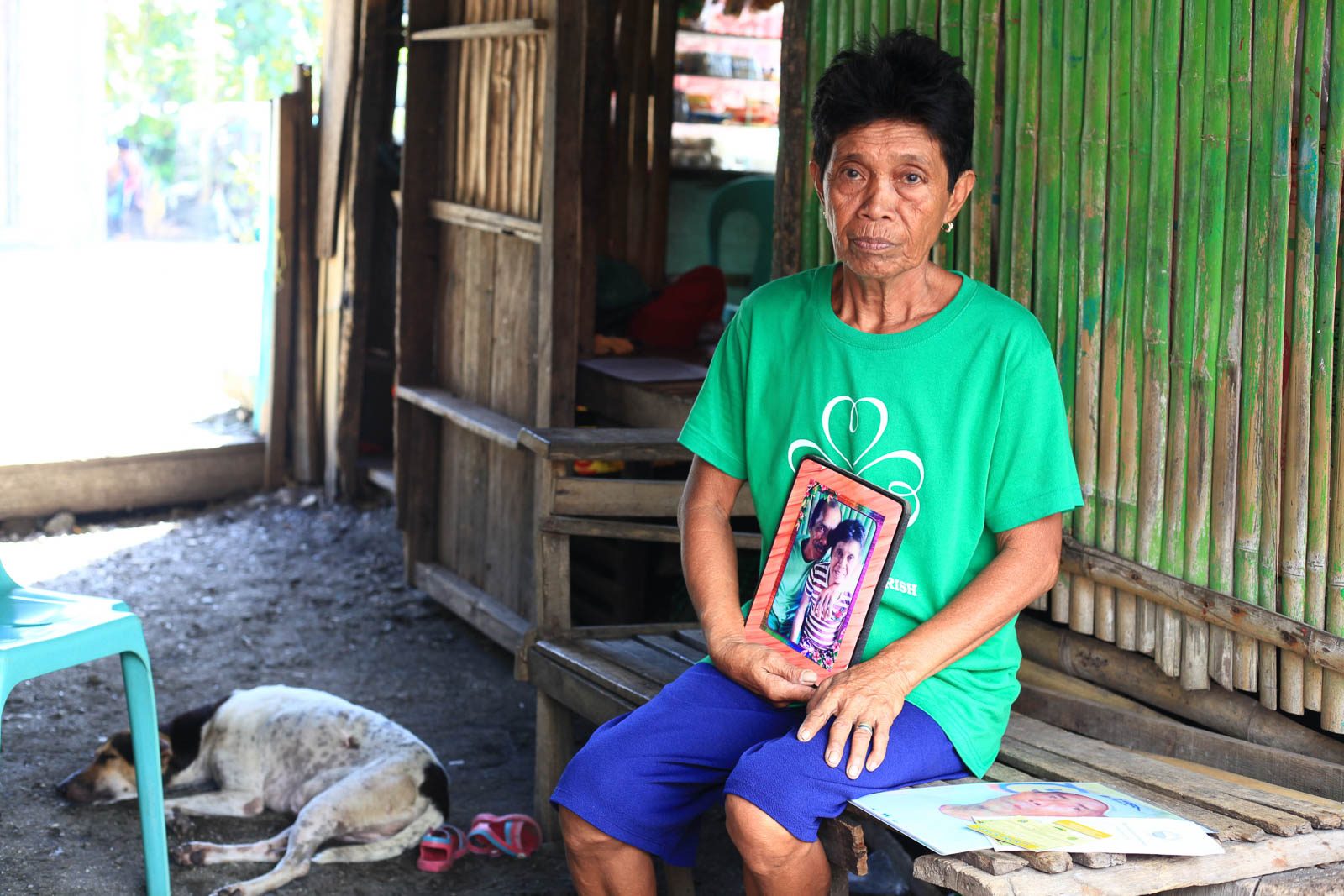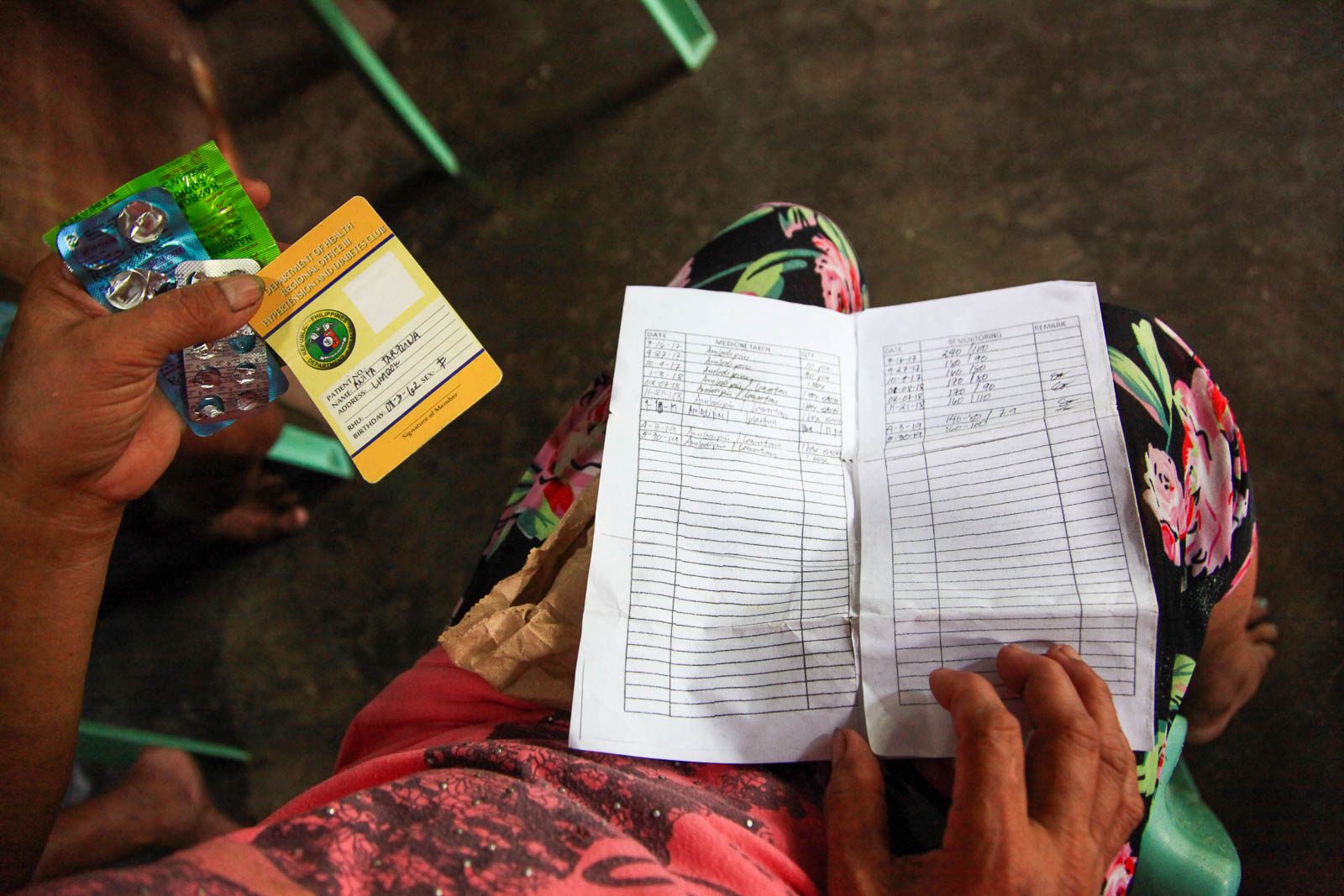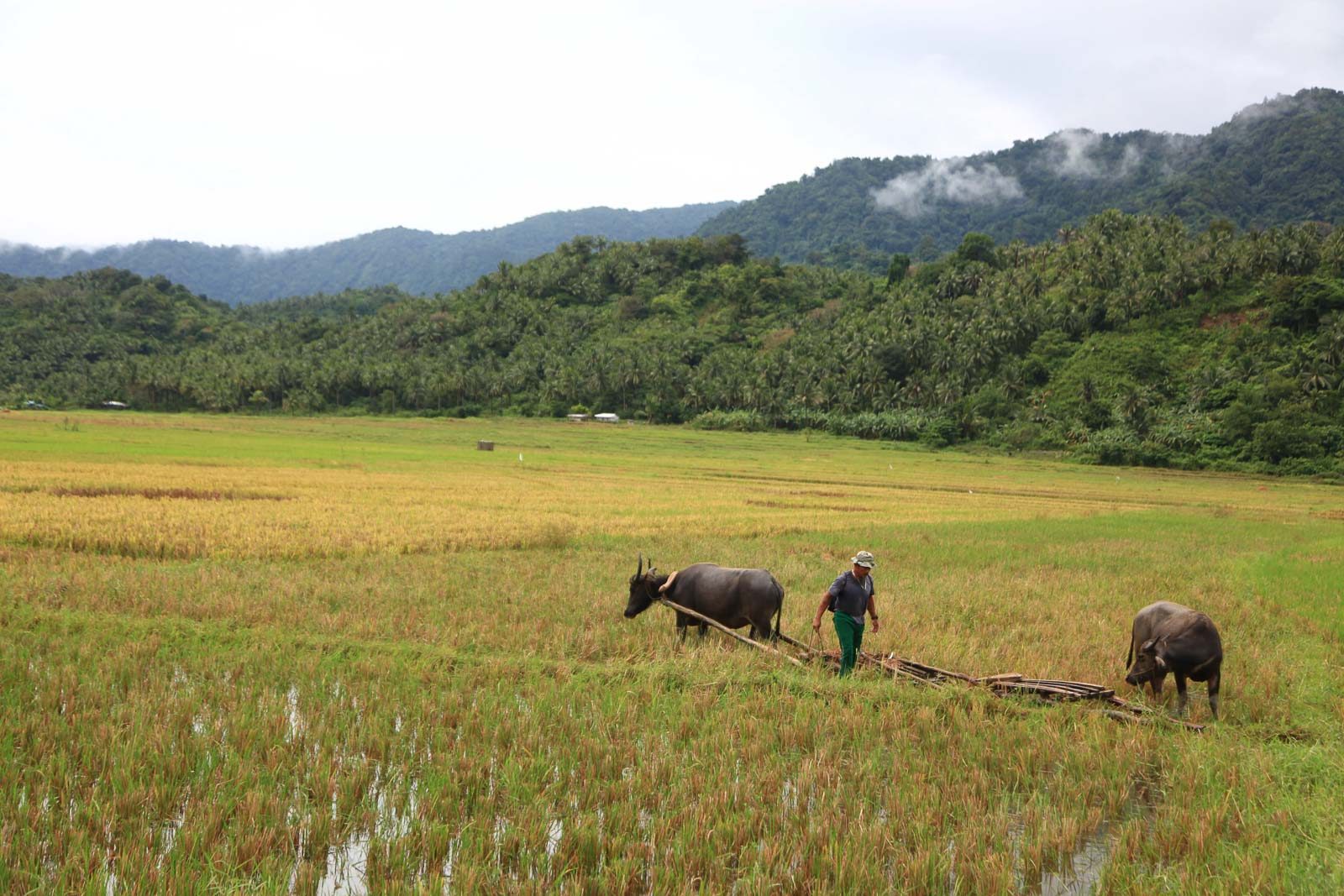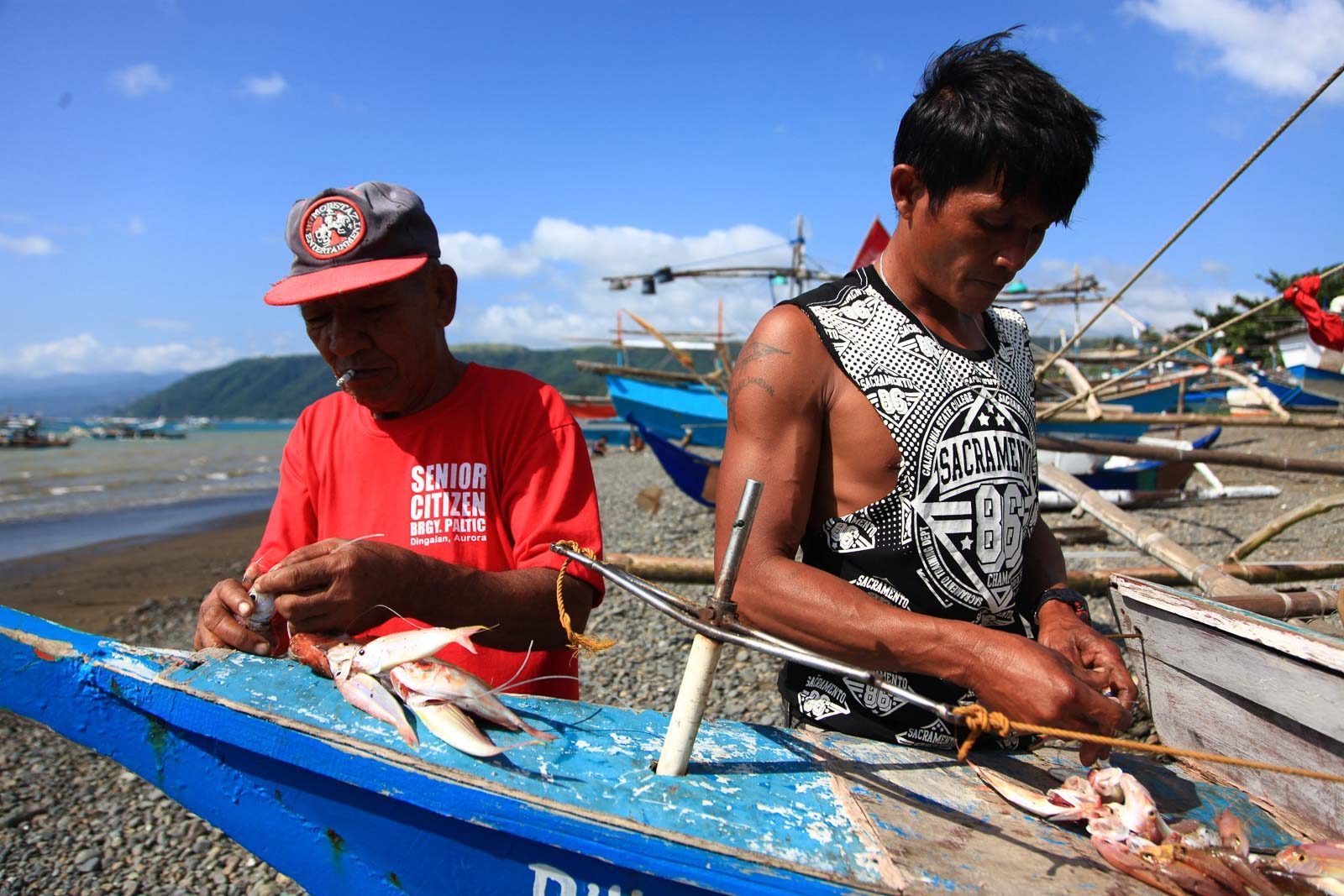SUMMARY
This is AI generated summarization, which may have errors. For context, always refer to the full article.

An expert says prolonged heat exposure increases the vulnerability of farmers and fisherfolk to 'climate-sensitive' illnesses, such as heat stress and heat stroke
AURORA, Philippines – As global temperatures continue to rise, Filipino farmers and fisherfolk communities bear the brunt of extreme heat conditions. Climate change, which increases temperature and frequency of extreme heat events, will cause more heat-related illnesses and mortality among vulnerable populations.
Prolonged heat exposure increases the vulnerability of farmers and fisherfolk to “climate-sensitive” illnesses, such as heat stress and heat stroke, according to Glenn Paraso, a health consultant to the Philippines’ Climate Change Commission.
“Heat stroke is the dehydration of the body at a very fast rate due to time and exposure,” Paraso said.
When when subjected to heat beyond the normal body temperature, a person experiences heat exhaustion and stress. Internal body temperature is balanced with external heat through perspiration.
With continued exposure to extreme heat, increase in perspiration, and extreme dehydration, the body cells would rupture and potentially cause heat-attributed mortality.
Vulnerability to heat-related illnesses
Fisherfolk and farmers are equally at risk to climate-sensitive illnesses due to their prolonged exposure to heat in large volumes when out at sea and on the field.
Increase in temperatures and heat events will exacerbate pre-existing health conditions, such as cardiovascular and respiratory diseases, and will expose children and elderly population more prone to heat-related illnesses.
Among the residents of Dingalan, Aurora, affected by the increase in heat for the past years are Anita and Rofino Tarzuna, who reside in Sitio Limbok. They couple have been experiencing increased effects of heat to their health and livelihood due to climate change.
“Dumidiskarte lang. Para magtuloy-tuloy ang paggagamas mo habang mainit, kumukuha kami ng anahaw, ‘pinapandong namin…para hindi masyado kami natatablan sa init,” recalled the 57-year-old Anita, who ceased upland farming several years ago due to her high blood condition.
(We try to find ways. In order to continue farming under the heat, we get an anahaw leaf, we use it as a hood…so we don’t feel the heat as much.)
Extreme heat when farming has caused dizziness and loss of consciousness to Anita.
 Meanwhile, Rofino, a 62-year-old fisherman, infrequently goes out to catch fish during peak seasons.
“Ay, itong taon na ito matindi na ang init. Noong nakaraan lang nakalaot kami kaya hindi na ako lumalaot nang araw, sunog na ako sa init…. ‘Pag araw kasi mainit, hindi ko na kaya ngayon. Sa mga bata pa, kahit mainit [ayos lang], pero sa akin, surrender ako, hindi ko kaya,” said Rofino, who can no longer endure the heat on the open sea.
(The heat is really intense this year. Before, we could still go to sea, but now I no longer set out during the day because of the heat. It’s really hot in the day, I can’t take it anymore. It’s okay for younger people, but I surrender, I can’t endure it.)
Anita and Rofino have shifted their livelihood from fishing and farming to tending a small piggery next to their house to avoid prolonged exposure to extreme heat.
Meanwhile, Rofino, a 62-year-old fisherman, infrequently goes out to catch fish during peak seasons.
“Ay, itong taon na ito matindi na ang init. Noong nakaraan lang nakalaot kami kaya hindi na ako lumalaot nang araw, sunog na ako sa init…. ‘Pag araw kasi mainit, hindi ko na kaya ngayon. Sa mga bata pa, kahit mainit [ayos lang], pero sa akin, surrender ako, hindi ko kaya,” said Rofino, who can no longer endure the heat on the open sea.
(The heat is really intense this year. Before, we could still go to sea, but now I no longer set out during the day because of the heat. It’s really hot in the day, I can’t take it anymore. It’s okay for younger people, but I surrender, I can’t endure it.)
Anita and Rofino have shifted their livelihood from fishing and farming to tending a small piggery next to their house to avoid prolonged exposure to extreme heat.
 Heat stress and heat stroke, due to extreme heat caused by climate change, had been hitting coastal communities like Sitio Limbok.
Anna Mekitpekit lost her husband, Juan, a fisherman, to heat stroke on June 6, 2019. According to Anna, Juan survived the first mild stroke that hit him while at the sea in 2018.
Juan complained about the numbness of his half body. Thinking it was a harmless body ache, Anna rubbed an herbal ointment on Juan to ease the numbness.
Several days later, Juan was rushed to the hospital due to symptoms of stroke. Juan experienced succeeding stroke attacks in 2018, but the third stroke in 2019 took his life away.
Mitigating heat-related illnesses
Paraso, who had studied the effects of climate change on public health since the 1990s, asserts the direct impact of the environment to a person’s physical well-being.
“Our bodies are always exposed to the environment we live in,” Paraso said.
Changes in the environment due to climate change will therefore have a tremendous impact on the health of an individual.
Heat stress and heat stroke, due to extreme heat caused by climate change, had been hitting coastal communities like Sitio Limbok.
Anna Mekitpekit lost her husband, Juan, a fisherman, to heat stroke on June 6, 2019. According to Anna, Juan survived the first mild stroke that hit him while at the sea in 2018.
Juan complained about the numbness of his half body. Thinking it was a harmless body ache, Anna rubbed an herbal ointment on Juan to ease the numbness.
Several days later, Juan was rushed to the hospital due to symptoms of stroke. Juan experienced succeeding stroke attacks in 2018, but the third stroke in 2019 took his life away.
Mitigating heat-related illnesses
Paraso, who had studied the effects of climate change on public health since the 1990s, asserts the direct impact of the environment to a person’s physical well-being.
“Our bodies are always exposed to the environment we live in,” Paraso said.
Changes in the environment due to climate change will therefore have a tremendous impact on the health of an individual.
 To avoid heat-related illnesses, Glenn recommends constant hydration and rest for fisherfolk and farmers working under heat conditions in a country like the Philippines with a temperature band of 33 to 35 degrees celsius.
To avoid heat-related illnesses, Glenn recommends constant hydration and rest for fisherfolk and farmers working under heat conditions in a country like the Philippines with a temperature band of 33 to 35 degrees celsius.
 Without serious climate action from world leaders, global temperatures are predicted to rise from 1.5ºC to 2ºC of warming. The United Nations Framework Convention on Climate Change (COP 25) held in Madrid, Spain, in December 2019 failed once again to immediately reduce carbon emissions targets of countries.
This lack of climate leadership will continue to endanger the health of fisherfolk and farmers who are exposed to extreme heat brought about by climate change. Farmers and fisherfolk like Anita, Rofino, Anna, and Juan – who toil under the heat for livelihood – will continue to be affected by conditions beyond their control. – Rappler.com
This story was produced with the help of Internews’ Earth Journalism Network.
Without serious climate action from world leaders, global temperatures are predicted to rise from 1.5ºC to 2ºC of warming. The United Nations Framework Convention on Climate Change (COP 25) held in Madrid, Spain, in December 2019 failed once again to immediately reduce carbon emissions targets of countries.
This lack of climate leadership will continue to endanger the health of fisherfolk and farmers who are exposed to extreme heat brought about by climate change. Farmers and fisherfolk like Anita, Rofino, Anna, and Juan – who toil under the heat for livelihood – will continue to be affected by conditions beyond their control. – Rappler.com
This story was produced with the help of Internews’ Earth Journalism Network.



According to the International Labour Organization (ILO), the increase in heat stress due to global warming will cause productivity loss amounting to 80 million jobs by the year 2030. The ILO study indicates that the poorest countries will be the most affected by diminished productivity due to heat caused by climate change.Extreme heat due to climate change poses occupational health risks to farmers and fisherfolk and will negatively impact the productivity of labor-intensive work.

Add a comment
How does this make you feel?
Loading
There are no comments yet. Add your comment to start the conversation.